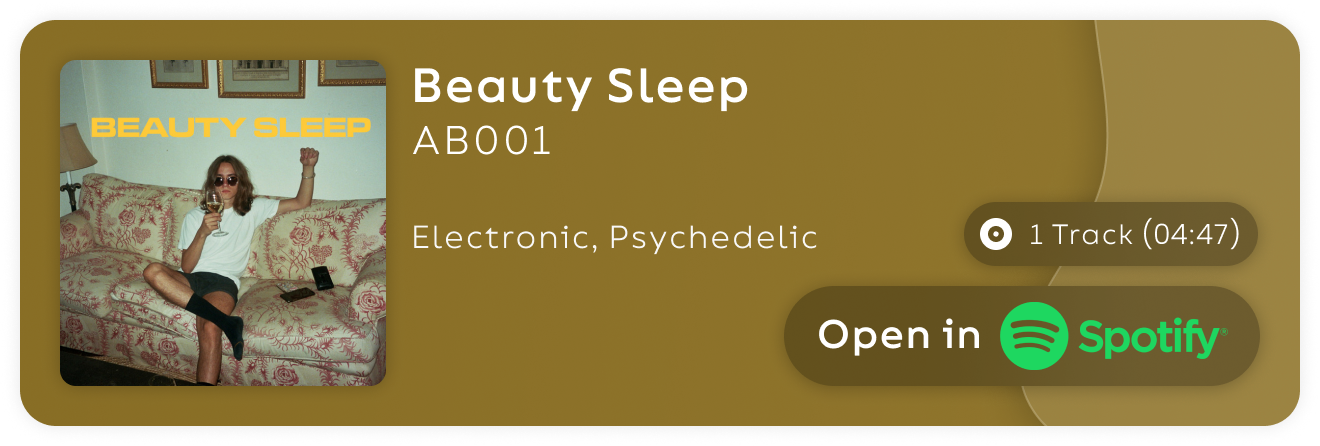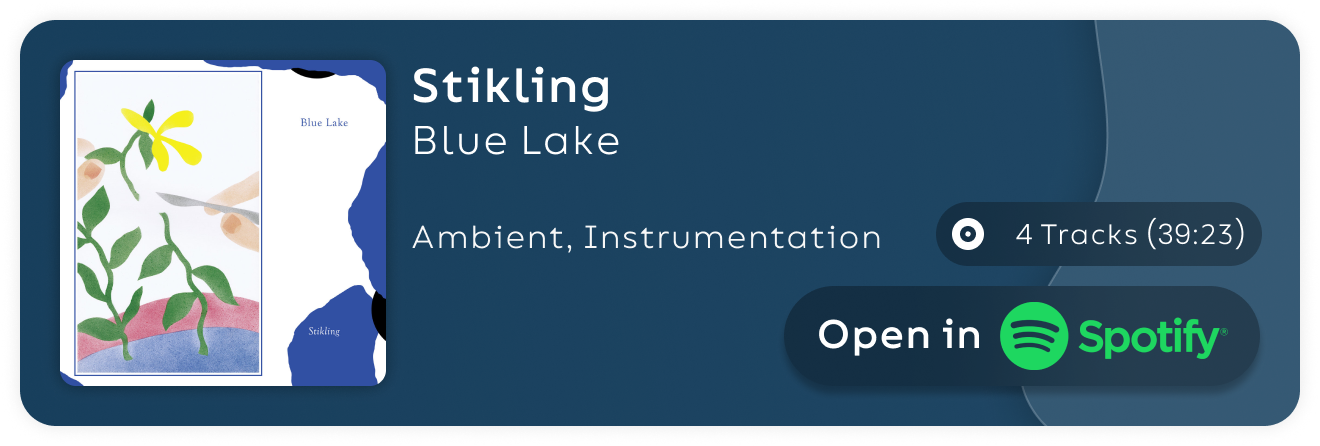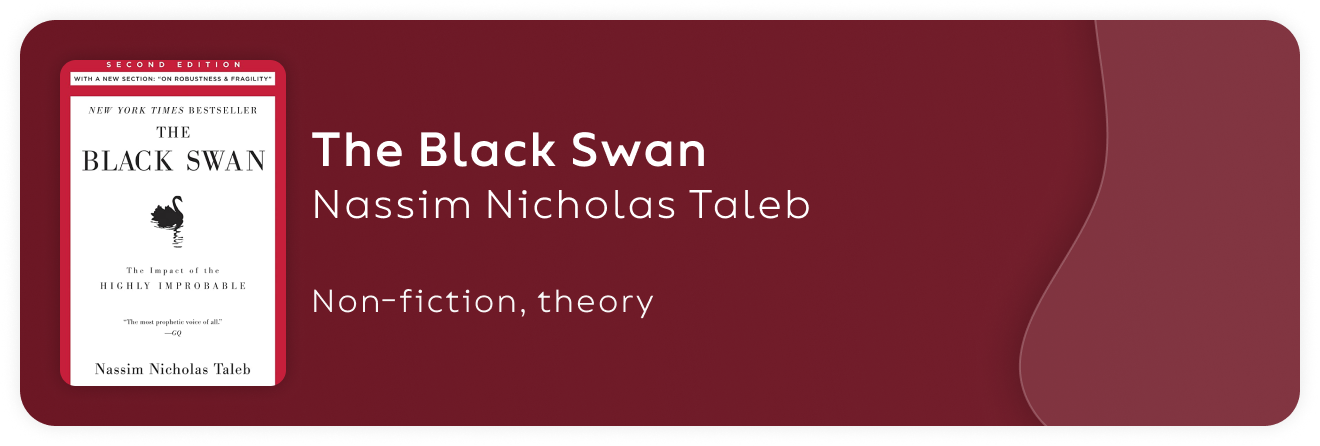A Black Swan Arrives

Does our affinity for distraction hint at our evolutionary destiny?
Lots of people seem to be on edge this week after Apple announced the Vision Pro, an augmented reality headset that is now being being hailed as the harbinger of Spatial Computing. I found this a curious response to what for me, was a source of jubilant curiosity and excitement. As the Apple team demoed their product, I watched live, clapping and whooping in the same manner I would as a boy being gifted his newest G.I. Joe.
I've always been a futurist. As a child I constantly pondered everything from simulation theory, to space travel, to hive minds and beyond. I briefly convinced myself as a child of 8 or 9 that I was the only sentient thing in my environment and that the people and places in my vicinity were all a response to my existence, a tonic that kept me sedated and docile, wardens and perimeters keeping me from escaping to the truth. I then watched The Matrix and realized my thoughts were not novel and that my mother was actually, in all likelihood, my real mother made of flesh, bone, and consciousness, just like me.
As I got older, I began learning about events like the Singularity, artificial general intelligence, virtual worlds, uploading your consciousness and transferring it between vessels, and all types of whacky, outlandish things. My best friend and I would stay up late pondering the possibilities of our life-time. We dreamed of the day we could travel to distant planets or build beautiful underwater cities or cure mortality with a daily supplement. Time went on, our pre-frontal cortexes connected, and we began to tamper our expectations.
That was until this last year: Large language models, autonomous agents, generative image creation, NeRFs, nuclear fusion, reusable rockets, Vision Pro. Suddenly our delusions of grandeur didn't seem that misplaced, it stands now that we seem to be hurtling towards a future that is straight out of a good science fiction novel, or if you're on the other side of the fence, a Black Mirror episode. Upon observation, we appear to be in the after times.
What do I mean by that?
A few months ago, I sat with my friend David Lee (hi David) and we discussed the technological happenings of the last few months. Being two individuals who work in tech and who enjoy adding our own entries to the world wide web, we talked enthusiastically about things. During our conversation we stumbled upon a noteworthy concept. The after-times.
In history there are before-times and there are after-times. The before-times refer to the time's pre-disruption - the time's where the proletariat can still make measured guesses about where society will be this time next year and they wouldn't be too far off from what the technocrats would wager. In these times, the luddites and the futurists exist in the same relative reality. Then what happens?
A Black Swan arrives and changes everything.
A Black Swan event, by my interpretation, is a highly unlikely, difficult to predict, massively consequential event that arrives with little to no warning. The idea comes from the now ancient presumption that black swans did not exist because all we ever saw were white ones. So, the before-times in this scenario is the world where it was understood that only white swans existed. The after-times arrived in a second, it was no gradual turning of the wheel, the world was one-way and a moment later it assumed a new form, black swans suddenly existed, species had to be added to the Encyclopedia.
So we are now in the after-times, and we crossed the border sometime in the last year unknowingly. How can you tell? Well, look ahead at next year. What do you see? Do you feel you can predict with any degree of accuracy what society will look like technologically? How about next month? Next week? How about tomorrow? It's mighty foggy isn't it? Anyone who says it isn't clearly has not been keeping up with the rapid developments in the world of AI these last few months - every-day there is something new and groundbreaking.
Technology evolves exponentially, not linearly. This can be displayed by the boom of the 1900s. Up until then, quality of life and technologies advanced gradually, stagnantly at points, at a pace that was relatively uninspiring to the masses. It was understood that life was going to be a short, painful, and extreme existence. In the 1800's we had electricity, the steam engine, the telegraph/telephone, the sewing machine, the automobile. But then in the 1900s, something happened, an explosion occurred. All the advancement and progress of thousands of years was usurped violently in 100 years of innovation. Antibiotics, the airplane, the atomic bomb, nuclear power, space flight, the internet and personal computer, GPS, MRIs, gene therapy all arrived on the scene and reshaped the world radically.
I believe that we are crossing the threshold into an epoch of a similar nature, but this time the stars of the show are artificial general intelligence, spatial computing, bio-hacking, consumer space travel, virtual reality, and decentralized systems.
Long story short, we're heading towards a future that worries a lot of people, and I get it. Fears of further social disconnection, polarization, and even faster drifting away from our relation to "nature" commonly populate. Society on the outside is being divided into cohorts of naturalists and futurists. Naturalists I define as those who want to deepen and recuperate our connection with the natural world and believe the answer to doing so is not in the hands of reality augmenting technology. Futurists on the other hand seem to believe that our liberation lies in the hands of innovation, that technology will unlock our ability to interface with nature in less intrusive and more collaborative ways. Admittedly, we have not done that effectively up to this point, but I argue that one cannot go from the stone wheel to the space shuttle without all the iterations and failed experiments in between.
But wait, these two cohorts do not make up the full picture, not even close. The largest cohort is a passive majority that is revealing a fascinating trend. That trend being, that even though we signal overtly that we want less interaction with technology, we can't seem to help ourselves from continuing to fork over more and more time and attention year after year. Screen time is increasing, content creation is increasing (more than 500 hours of video is created on YouTube alone every minute), loneliness is increasing, time spent being bored is decreasing rapidly. Humans, by majority, seem to love being distracted, humans seem to be for the most part indifferent to mitigating their relationships with technology and instead continually invite it into deeper and deeper relationship with their being. From ground-zero, this seems like an unfortunate accident, but from a birds eye view this can be read as a collective movement in one distinct direction. Humans desire to integrate with their technology and give birth to it at astonishing speeds. Is this our fate as humans? Are we collectively and subconsciously deciding that humanity's next step in evolution is one towards singularity? Is this actually the only way we move past the destruction of our environment? Is this how we move past the point of war, being of one digitally dispersed mind? Or are we simply being manipulated to wicked ends?
Perhaps boredom and quiet hours were a necessity for past generations of human, but now are simply optional skills reserved for only the most sensible of disciplinarians. To spend time disconnected, to move further away from technology is seemingly a decision being made against the grain, against the apparent current of evolution.
I don't know how I feel about it all. I'm of the mind that life is for the experiencing, that artificial intelligence is just as part of nature as the soil we tread upon, that the universe doesn't give a damn about what happens so long as something does, and that the point of life might just be to see what happens, even if that means that homo sapiens become something else entirely when all is said and done, or even more poignantly, become nothing at all. Humanity after all is likely just something that happened along with everything else. No more significant than the tiniest of amoebas or the grandest of gas giants. Whether we return to union with nature, become permanent residents of the Metaverse, become interplanetary explorers, or perish entirely in the pursuit - in the face of powerlessness, does having a preference just guarantee suffering? Let's just see what happens.
I leave you with a quote from Neil Postman:
The mechanical clock made possible the idea of regular production, regular working hours, and a standardized product. Without the clock, capitalism would have been quite impossible. And so, here is a great paradox: the clock was invented by men who wanted to devote themselves more rigorously to God; and it ended as the technology of greatest use to men who wished to devote themselves to the accumulation of money. Technology always has unforeseen consequences, and it is not always clear, at the beginning, who or what will win, and who or what will lose.
🎧 A Song to Study

🏡 An Album to Live In

📚 What I'm Reading

To learn more about the impact of the highly improbable, I've been reading The Black Swan by Nassim Nicholas Taleb. Last year it felt my life was at risk of coming undone due to the arrival of 3 distinct personal Black Swan events - I will talk about these in the coming months. Until then, here's a passage that stood out to me in recent reading.
Categorizing always produces reduction in true complexity. It is a manifestation of the Black Swan generator, that unshakable platonicity that I defined in the prologue. Any reduction of the world around us can have explosive consequences since it rules out some sources of uncertainty; it drives us to a misunderstanding of the fabric of the world.
👋 Until next time...
I understand how sacred privacy is in our day and I feel tremendously honored when someone trusts me enough to let me into their inbox week after week. Thanks for being here ❤️.